- Home
- Andy McNab
Spoken from the Front Page 9
Spoken from the Front Read online
Page 9
Workwise, there is so much to do and everything takes so long. Plus we're a bit short-staffed, most of my PsyOps section were sent down to Garmsir with about 17 other Brits and a few Estonians helping about 100 local Afghan forces beat off a Taliban advance. Constant fighting for 6 days. And I mean constant fighting. One of the Royal Marine corporals from my team got sent down there (I rather hopefully gave him a video camera, but he didn't get it out of his bag). He manned a 50-cal gun and fired 1,600 rounds. And a sgt major from my battalion got shot in the arm. Garmsir is incredibly strategically important because it's the furthest south ISAF [International Security Assistance Force] have been and it's the main crossing point down there over the Helmand river.
We had a visit on camp from a woman from a Canadian NGO, who told us about the state of the IDP [internally displaced people] camps on the outskirts of town ... children starving, people being recruited to the Taliban for the price of a day's food, the usual desperate plight of those displaced by war. The politics, though, is phenomenally complicated in that we as ISAF troops cannot be seen to help these people unless they become a military threat. We can't just go and give them food, because they can't become dependent on us. It's up to the Helmand governor to do that, to help his own people. But nobody seems to be doing much about it. Aid, when it's given, often ends up being sold in the bazaars – still in its UN wrappers. We see it as we drive by. What can you do in a country which blocks your efforts to help at every turn? It's very frustrating.
September 2006
Corporal Fraser 'Frankie' Gasgarth, The Royal Engineers
Corporal Fraser 'Frankie' Gasgarth, The Royal Engineers, is thirty-two, He was born in Carlisle, Cumbria. The son of a sales rep for an agricultural feed company, he has an older brother. Both his grandfathers served in the Army during the Second World War. Gasgarth left school at sixteen to start an apprenticeship in mechanical engineering but, after completing the five-year course, gave it up to travel around the world for four months. On his return, he made award-winning cheese while his application to join the Army was considered. He eventually went into the Royal Engineers in 1999, aged twenty-two. During his time in the Army, he went on tours to Northern Ireland and Iraq, before being sent to Afghanistan in September 2006. Gasgarth, who is engaged, is based at RMB Chivenor in Devon. He got his nickname from comrades and was named after Mad 'Frankie' Fraser, the gangster – because he was always volunteering to do crazy tasks.
My arrival in Afghanistan was relatively straightforward – and was, without doubt, considerably less dramatic than an incident shortly after I had first arrived in Iraq, just after the start of the Second Gulf War in 2003. Now that was an adventure: the day two of us accidentally took a wrong turn and ended up being repeatedly shot at as we mistakenly headed towards Basra, Iraq's second city.
In contrast to Iraq, my first few days in Afghanistan were a piece of cake. We went out as a full squadron – as 59 Commando Squadron – and took over from the Paras out there. Our role was to support 3 Commando Brigade. My job was as a fitter section commander, responsible for maintaining and fixing plant kit. I took over twenty-eight bits of kit and, out of that, one bit was 'roadworthy' meaning – back in the UK – you could take it on the road, one piece was 'taskworthy' – you couldn't drive it onto the road but could take it onto site. The rest was 'U/S': unserviceable. Yet we had to get it all up and running. The kit consisted of everything from JCB diggers, medium-wheel tractors (which have a massive bucket on the front), excavators and graders. A lot of the kit gets sent to out-stations and is used for fortification. All the kit would be used for things like putting up Hesco [bastion] walls, building protections for the [Afghan National] police and building new forward operating bases.
I was primarily based in [Camp] Bastion but we went anywhere – on a road-move – where plant went with us. Perhaps you would build a temporary FOB. From there, the Royal Marines would disappear and do strike attacks but they would have a base to come back to in the desert. As soon as they had finished, we would collapse it all and take it with us. In Bastion, we would have fitters in every out-station and they would look after kit in each plant station. Kajaki was where I spent most of my time – two months in all – and that was where the 'hypothermia incident' happened. But that's another story ...
September 2006
Major Maria Holliday, QGM, Royal Military Police (RMP)
I'm a bit of an animal lover. There was a cat in Lashkar Gah that we adopted. She became pregnant and had four kittens. The rumour was that she'd had some during the last tour and they'd all died. Anyway, she gave birth in a cardboard box in the Brigade Headquarters but we had to move them out of there. We moved them into an area where there was an Afghan gardener and he kept an eye on them. She got really bad flu symptoms and she was so weak she couldn't feed them. I was trying to give the kittens some dried milk powder made up. Of course, it wasn't the right thing but that was all we had. I also used a bit of cod liver oil but kittens are notoriously hard to hand rear. I was on the phone to the UK vets to get some guidance on what to do with these kittens but, unfortunately, despite all my best efforts, because I couldn't get any proper stuff for them, they all died one by one. The longest one lasted ten days. The gardener buried them all in the little garden in Lashkar Gah. I felt very sad. They had a harsh existence but that's just life in Afghanistan.
The mother eventually pulled through. I managed to get her some human antibiotics from a local who claimed to be a vet, but I was having to guess on the dosages. She later became pregnant again. She was a skinny little ginger cat. She was quite feisty. She used to chase the search dogs. There was a Labrador who was quite frightened of her and used to run away from her. I called her Nagina: she was a wild cat but she was getting fed. Lots of people's mums and sisters were sending her cat food [in the post]. I managed to move her at the end. I was in contact with a rescue society in Kabul that was run by a female American journalist. They said that if I could get her to Kabul, they would take care of her and try and rehome her. Then the cat became pregnant again and it was coming to the end of the tour so I thought: Nothing ventured, nothing gained.
I managed to get her to Kabul at the same time as I was also escorting some Afghan police. So I had a pregnant cat in a cat box in a bag. I took her up to Kabul in September, close to the end of the tour. She went on a helicopter from Lashkar Gah to Camp Bastion; it was a really hot day and she was terrified by the noise of the helicopter. Then she went on a Hercules from Camp Bastion to Kandahar and another Hercules from Kandahar to Kabul. I had some help from the RAF and she went finally in a Saxon [armoured vehicle] from Kabul airport to the British camp. Then I contacted the cat rescue place. She almost escaped at the camp right at the end: she made a bid for freedom up the wall and I just managed to catch her. I contacted the rescue society and they came to the camp and collected her. It was sad to say cheerio to her. Much later, I contacted the American journalist lady: Nagina had had another litter of kittens but, once again, they all died. So they spayed her. I have always been an animal lover. The two dogs I have, Alice and Bumper, are from Croatia and Bosnia.
25 September 2006 [email home]
Captain Charlotte Cross, Territorial Army
Hello ... Still in Kandahar, but getting ready to leave, which is a relief. I've run out of dollars and clean socks, and I can't put my laundry in because it takes 24 hours to come back, and I don't want to lose any of my clothes when I leave because I don't have very many! Oh, the traumas of living in a war zone. It's been okay here in the HQ, though seeing the politics first hand, sitting in on planning meetings, witnessing the absolute lack of joined-up working this Bde [Brigade] has ... it's been pretty enlightening. My days have been pretty dull too. Originally I was staying in a tent in Camp Faraway, so called because it literally is very far away from the rest of the camp. It has rows of tents called things like 'Albert Square'. The ablutions are in metal containers, with three metal toilet cubicles with metal toilets, and three lit
tle tiny showers with metal walls and floors, and three metal sinks. All very functional. At least the water's been hot, when it's working. Sometimes I've had to trudge to the massive fridge and get bottles of water to wash in, which is freezing. So I wake up at 0645, trudge to the metal washing container, trudge back, pick up my rifle and go and wait at the bus stop to get a lift to the HQ ... Honestly, I thought I'd said goodbye to commuting for 6 months.
Once at work, I check my emails, then go to the morning commanders' update briefing, or CUB. Everything military has to be reduced to three-letter acronyms, or TLAs. This is fairly interesting: every branch head stands up in turn and briefs the commander on their bit of the war – operations, intelligence, plans, info ops, joint effects, engineers, you get the picture. It goes on a bit. Once that's over, we all go to breakfast ... I've been stuffing myself here. I usually eat a sausage, some tomato, a Danish pastry AND a yoghurt AND toast. I think it's a case of if it's put in front of you, you eat it.
Then it's time for coffee, and the joint effects meeting – they're trying (at the end of their tour and far too late) to join up the kinetic ops with the non-kinetic, which includes things like media, PsyOps and info ops. Then I spend the rest of the day in meetings, and touching base with the guys back in Lash to feed them information, and get info back from them. We have secure phone lines to do that on, but there's a massive delay so you end up talking over each other. I've also been issued a work mobile, which is good to just phone them up on for morale chats. My boss has had really bad D&V [diarrhoea and vomiting], and was put in isolation for a few days. They want me back there, for their morale, they say, which is nice. At least I feel missed!
Then it's lunchtime (like zoo animals in a cage our days are measured by mealtimes), and at 1730 we have another update brief ... this time we link up by audio with Lash so the two HQs know what the other has been doing. But the HQ in Kandahar and the HQ in Lash don't really get on, so there's often a few sarcastic comments going between the two.
Then, of course, it's dinner-time, and later everyone kind of hangs around drinking coffee and pretending to work until quite late. There's a ridiculous work culture here of see-how-late-you-can-stay, even though you're not really achieving anything and will be tired tomorrow.
The camp is odd too because there are two 24-hour Green Bean cafés, and a Canadian, Tim Horton's, and people get seriously obsessed about going for coffee ... I mean they actually talk about coffee like it's an interesting topic. I cannot wait to get back to Lash.
2
Introduction: Operation Herrick 5
In October 2006, the Royal Marines of 3 Commando Brigade relieved the Paras as part of Operation Herrick 5. The entire force totalled about 4,500 servicemen and women. 3 Commando Brigade had the advantage of coming forewarned and prepared for a fight. They also had a better force package than the Paras, with more troops on the ground and a whole regiment of Royal Engineers to focus on reconstruction and development. The Marines hoped to consolidate their positions in the various towns across the province, reducing their presence where possible in exchange for adopting a more mobile approach. There was also considerable international pressure to make progress on the reconstruction effort. Despite the brutal winter conditions, the Taliban maintained their presence and, like the Paras before them, the men of 3 Commando Brigade soon became engaged in some of the heaviest fighting of modern times.
The main combat power was provided by 42 Commando with 45 Commando taking on the Afghan Army mentoring role. 29 Commando Regiment Royal Artillery, 59 Independent Commando Squadron, 28 Engineer Regiment, C Squadron Light Dragoons and the Commando Logistics Regiment all fulfilled vital supporting roles. Close air support was provided by RAF Harriers, air-transport support in RAF Chinooks and Hercules and 2 Squadron of the RAF Regiment undertook the RAF Force Protection.
10 October 2006 [email home]
Captain Charlotte Cross, Territorial Army
I'm now surrounded by Royal Marines. You've probably heard that 3 Commando Brigade have taken over command out here, so pretty much EVERYONE is a Royal Marine. That took some getting used to. I even had to sew the 3 Commando 'flash' – like a Girl Guide badge, or maybe Scouts is more fitting – onto the sleeves of all my shirts to denote the fact that I am part of 3 Cdo [Commando] Brigade. It's an olive green square with a dagger on it. It makes me feel quite hard. Although of course I'm still not, and maintain pink nail varnish on my toenails at all times. But that's slightly ruined by the RSM [regimental sergeant major] who's just arrived with the corps. He's ruled that we're not allowed to wear civvy clothes at all any more – we used to get away with it in the evenings, just sports kit and flip-flops, to give my feet a break from heavy socks and boots (bearing in mind it's still reaching 50°C most days). But now I have to wear my uniform all the time, and my feet are actually starting to rot! The skin on my heels is turning yellow. It's very attractive.
One of the Marines stabbed himself with his morphine the other day, which was quite funny. At least, it will be until I do the same thing ... I just carry it around in my trouser pocket (we all do, seeing as you could be shot at any time), checking every so often in a slightly paranoid way that the safety cap hasn't come off ... They're designed to auto-inject a 4-inch needle straight into your thigh.
11 October 2006
McNab: The first British troops returned home after a summer of fighting in Afghanistan. The Army admitted that the period had seen some of the toughest battles it had faced in fifty years: for more than four months, the task force had been fighting in an intensity not seen since the Korean War. The force in Helmand lost sixteen men, killed, and forty-three were wounded. The amount of ammunition expended told the story of the fighting's ferocity: 450,000 rounds of small-arms fire, 4,300 artillery rounds and 1,000 hand grenades. One senior commander said: 'We went there to carry out reconstruction and we ended up fighting a war.'
October 2006
Lieutenant Rachel Morgan, Royal Naval Medical Branch
Lieutenant Rachel Morgan, Royal Naval Medical Branch attached to the Joint CIMIC (Civil Military Co-operation) group, was born and brought up in the north of England. An only child, she left school at seventeen and joined the Royal Navy in 1992 where she trained as a nurse. She was working in a military medical centre before she was deployed to Afghanistan. She completed a ten-month tour of the country from September 2006, working in the forward operating bases of Helmand and the Civil Military Operations Cell, supporting the stabilization effort. She is now based at the Naval Command Headquarters, Portsmouth.
Random acts of heroism probably take place far more often than are widely reported – and often can be treated as normal. Sometimes offensive operations happen at night. On one occasion a night-time operation was planned near one of the main towns, Gereshk.
The op was to investigate how far the Taliban were coming into town at night in the area. The plan was to go out and watch what was going on. I was travelling in a Snatch [lightly armoured Land Rover]. We had about ten vehicles and between sixty and seventy soldiers. Unfortunately the Taliban were waiting – or, if they weren't waiting, they got their act together very quickly. It was midnight. We had been out for about two hours and we started receiving small-arms fire.
I was quite well to the rear [of the vehicle convoy] going in. We were deployed outside the vehicle and I was in a position on the far left of our location. There was an incident and we were contacted from enemy forces to one side. Appropriate call signs returned fire and after a while the Marines started to push forward but quickly there was a change of plan. In the confusion, one of the vehicles, a Pinzgauer, an open-top vehicle, overturned. It was a hilly area and it got stuck in a stream, or wadi. In the ensuing rescue one of the officers became lodged under it. There was no panic and the Marines were in constant radio contact with what was going on around them.
The Afghan night was as black as you can imagine. Most of the soldiers were operating with night-vision goggles which I didn't have that
night but I could hear what was going on around me. In a very short space of time we could hear on our radio that somebody was injured and being recovered.
It was a young Royal Marine officer, not long out of training, who had been trapped, completely pinned down, under the vehicle. It turned out that the driver – who was a Royal Marines' sergeant – in the space of fifteen or thirty seconds got a wheel jack underneath the vehicle to lift it off his chest. The injured officer was so badly crushed he couldn't breathe. They lifted the vehicle up enough for him to breathe and squeezed him out from under it. They rescued their man even though there were bullets flying all around them. They managed to focus enough on getting the jack, making it work, getting to this officer, dragging him out from under the vehicle and bringing him back to the helicopter landing site. Within forty minutes or so he was picked up by a MERT [medical emergency response team]. He was taken back to Camp Bastion, where he was treated in the hospital and lived to tell the tale, and later made a full recovery. The quick thinking of that sergeant, and those Marines around him, undoubtedly saved that officer's life.

 Get Me Out of Here!
Get Me Out of Here!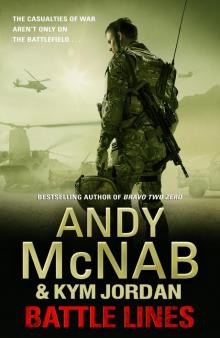 Battle Lines
Battle Lines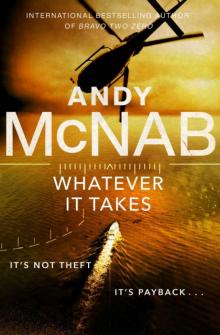 Whatever It Takes
Whatever It Takes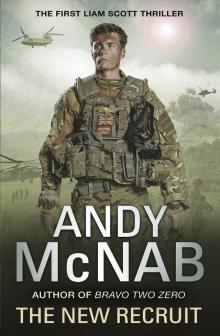 The New Recruit
The New Recruit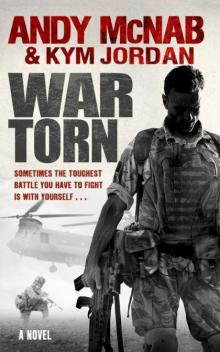 War Torn
War Torn Brute Force
Brute Force Crossfire
Crossfire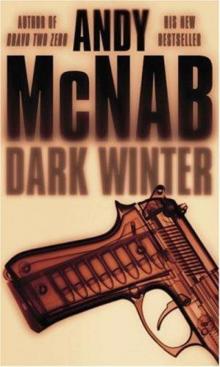 Dark Winter ns-6
Dark Winter ns-6 The Grey Man
The Grey Man Spoken from the Front
Spoken from the Front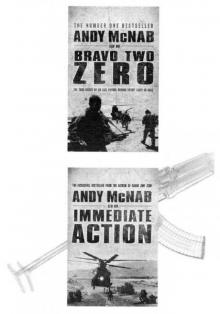 Meltdown
Meltdown Recoil
Recoil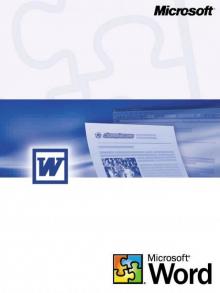 Nick Stone 1 - Remote Control.
Nick Stone 1 - Remote Control.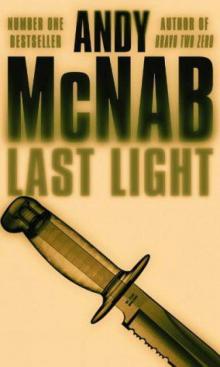 Last Light ns-4
Last Light ns-4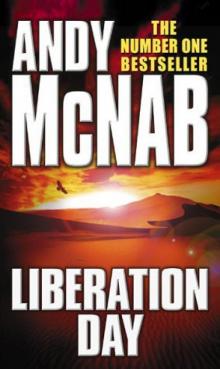 Liberation day
Liberation day Deep Black
Deep Black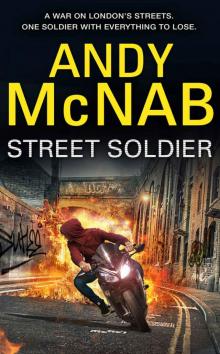 Street Soldier
Street Soldier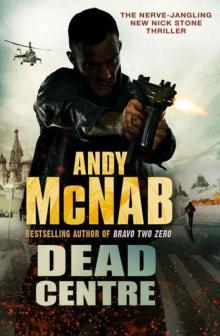 Dead Centre ns-14
Dead Centre ns-14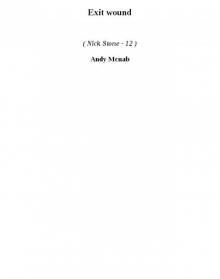 Exit wound ns-12
Exit wound ns-12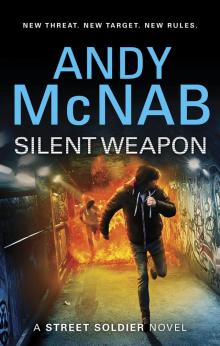 Silent Weapon
Silent Weapon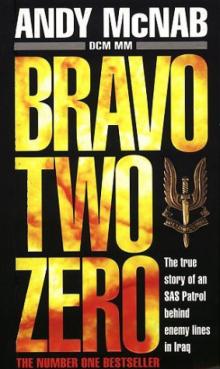 Bravo two zero
Bravo two zero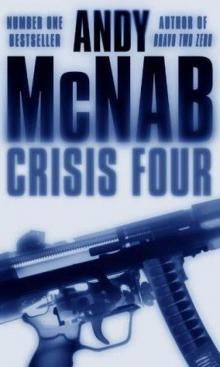 Crisis Four ns-2
Crisis Four ns-2 Red Notice
Red Notice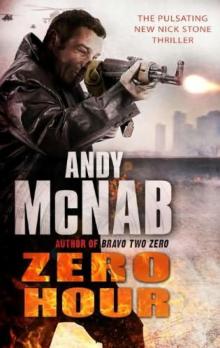 NS13 Zero Hour
NS13 Zero Hour Firewall
Firewall Last Light
Last Light Aggressor
Aggressor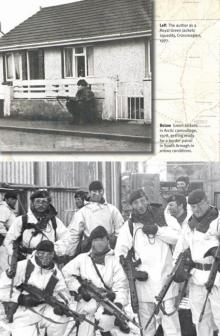 Seven Troop
Seven Troop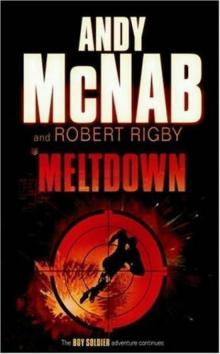 Meltdown bs-4
Meltdown bs-4 The Grey Man (quick reads)
The Grey Man (quick reads)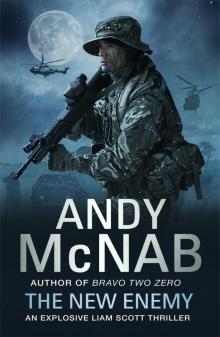 The New Enemy
The New Enemy Avenger
Avenger FireWall ns-3
FireWall ns-3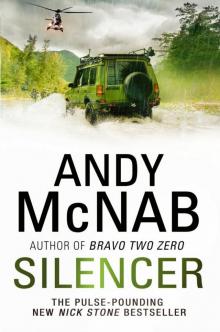 Silencer
Silencer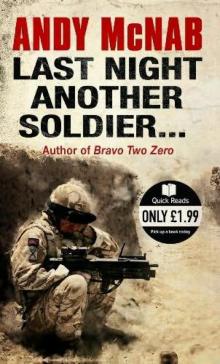 Last Night-Another Soldier…
Last Night-Another Soldier…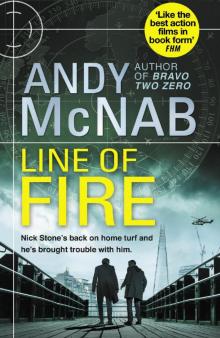 Line of Fire:
Line of Fire: Detonator
Detonator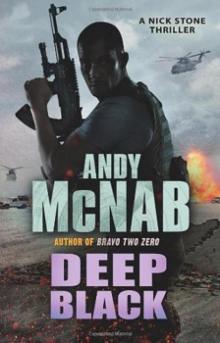 Deep Black ns-7
Deep Black ns-7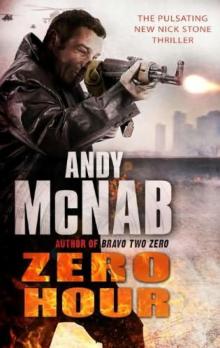 Zero Hour (2010) ns-13
Zero Hour (2010) ns-13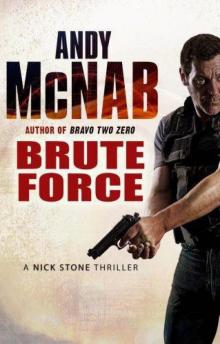 Brute Force ns-11
Brute Force ns-11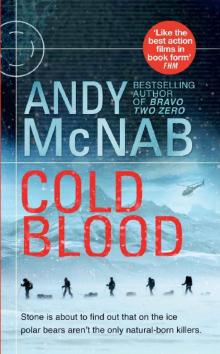 Cold Blood
Cold Blood Terminal Velocity
Terminal Velocity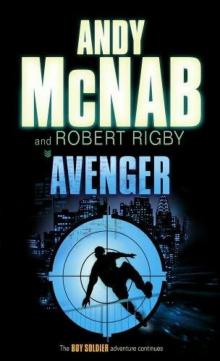 Avenger bs-3
Avenger bs-3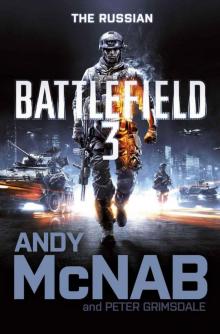 Battlefield 3: The Russian
Battlefield 3: The Russian DropZone
DropZone Zero Hour
Zero Hour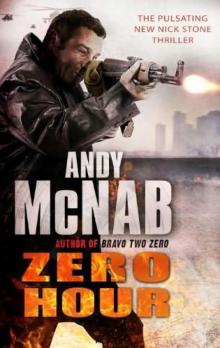 NS13 Zero Hour (2010)
NS13 Zero Hour (2010)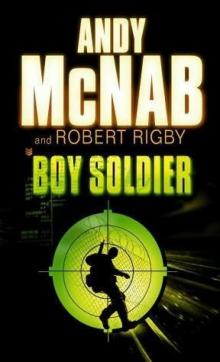 Boy soldier bs-1
Boy soldier bs-1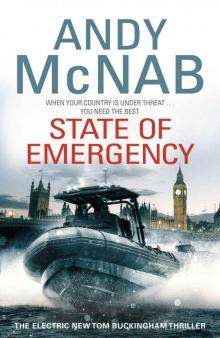 State Of Emergency: (Tom Buckingham Thriller 3)
State Of Emergency: (Tom Buckingham Thriller 3)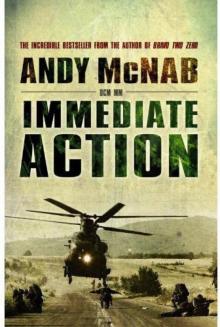 Immediate Action
Immediate Action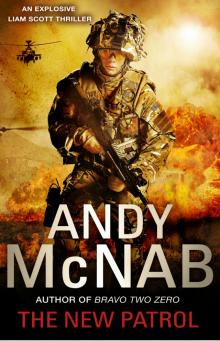 The New Patrol
The New Patrol Crisis Four
Crisis Four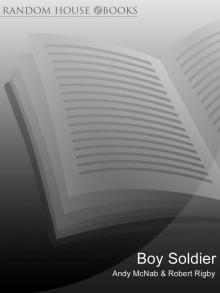 Boy Soldier
Boy Soldier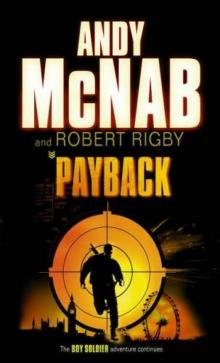 Payback bs-2
Payback bs-2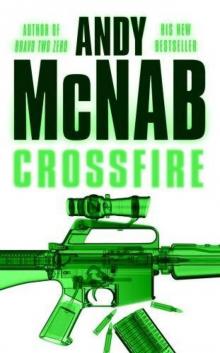 Crossfire ns-10
Crossfire ns-10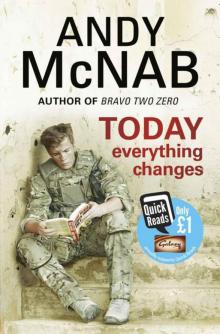 Today Everything Changes: Quick Read
Today Everything Changes: Quick Read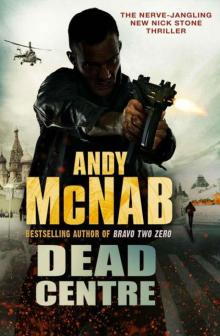 Dead Centre
Dead Centre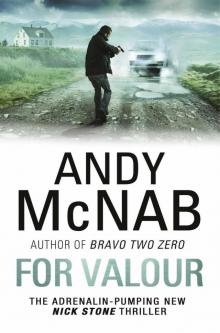 For Valour
For Valour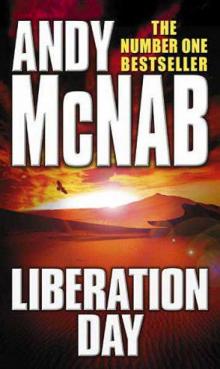 Liberation Day ns-5
Liberation Day ns-5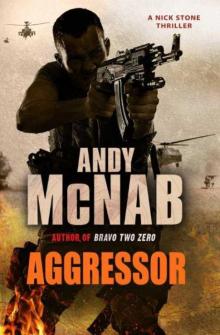 Aggressor ns-8
Aggressor ns-8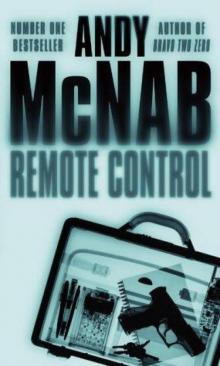 Remote Control ns-1
Remote Control ns-1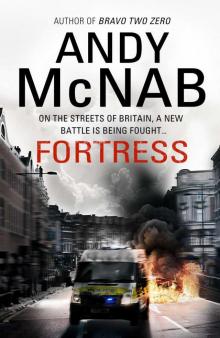 Fortress
Fortress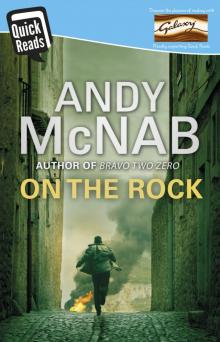 On the Rock
On the Rock Dark Winter
Dark Winter